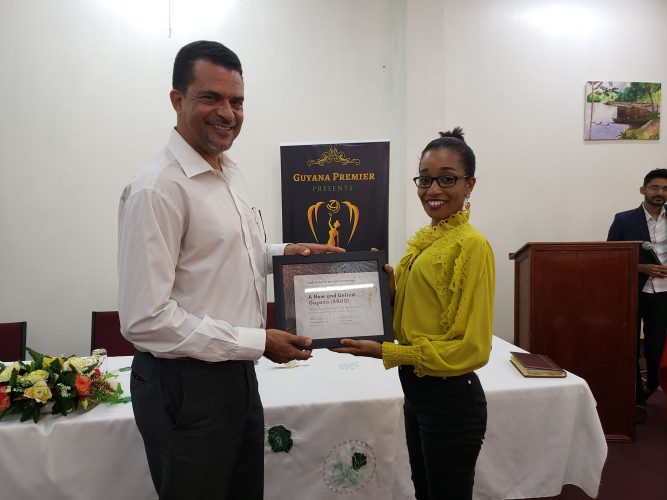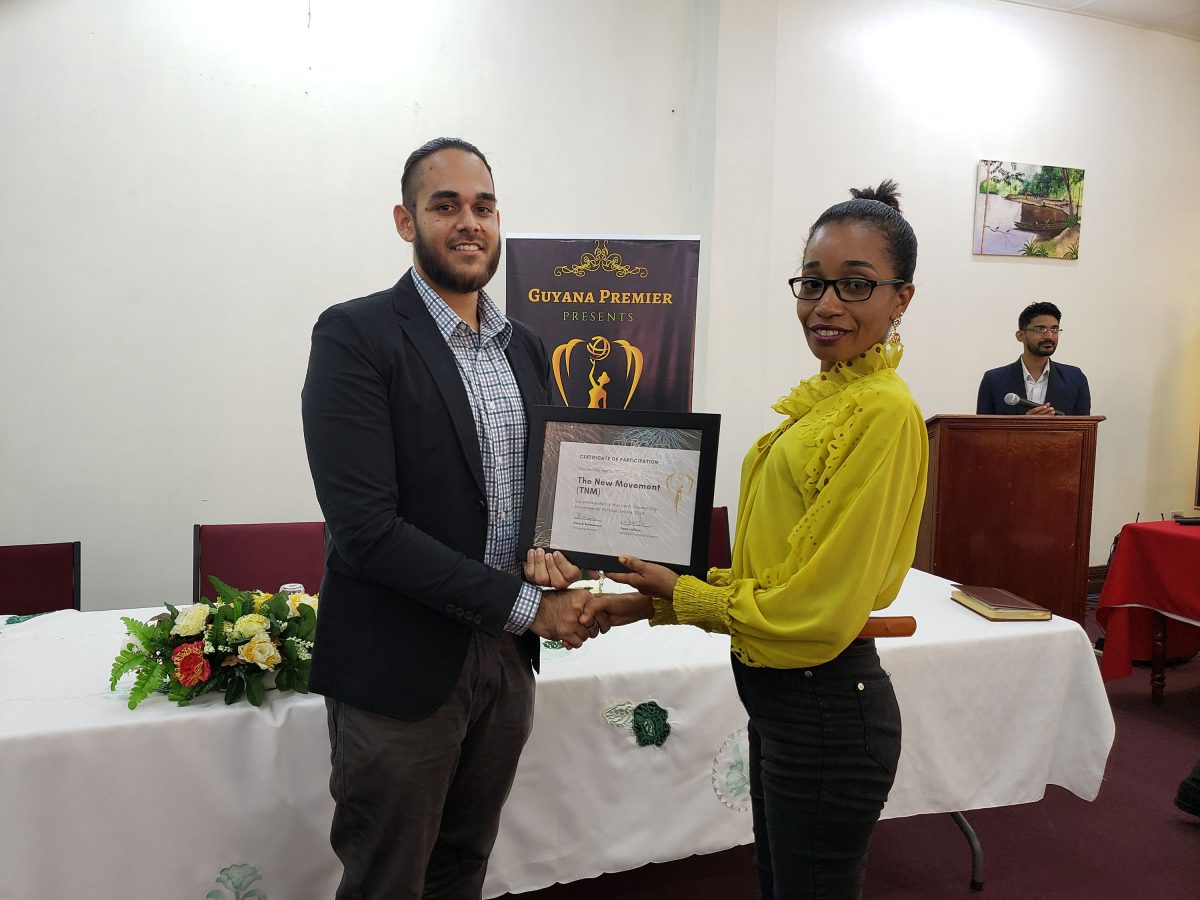A ban on single-use plastics as well as the establishment of regional teams to respond to wildlife and environmental issues are among the plans of three of the small political parties contesting the March 2nd general elections.
Daniel Khanhai of The New Movement (TNM), Timothy Jonas of A New and United Guyana (ANUG) and Jennifer Ramcharran of the Liberty and Justice Party (LJP), outlined their respective ideas at a discussion hosted by the Miss Earth Guyana Organisation last Friday about environmental and wildlife preservation.
The moderators were Adrienne Gomes, Dr Omesh Balmacoon and Naudya Hoosein-Majeed.

When the discussion commenced, Gomes asked each of the representatives to state the two most important environmentally friendly policies in their manifestos they would immediately implement if they were given the opportunity. They were asked to explain the reason for their answer.
Jonas said ANUG would seek to implement a ban on single-use plastics because they are the main items that are discarded around the country. (In 2018, the current government took a policy decision to ban the importation, manufacture, sale and use of single-use plastic bags and other single-use plastic products, including plastic plates, cups and utensils from 2021.) He said his party would also address mining issues because its end result is deforestation. He observed that the first thing that is done on a mining claim is the cutting down of trees.
Ramcharran, meanwhile, said the LJP is in favour of setting up “sustainable unit” teams that would govern every region collaboratively and tackle incidents related to wildlife and the environment. She said those units would be the foremost response team in those areas and will tackle every aspect of the environmental carnage in the country. She added that they will reform education policies, which will change the way Guyanese care for wildlife.
Khanhai said that TNM will be fighting for marine creatures to be protected. He further added that if ExxonMobil is not going to pay for it, they will demand that the oil major fund Guyanese scholarships so they can be trained in that area. In addition, he said, TNM wants to tackle waste disposal so it is planning to establish recycling factories before noting that he wants to see recycling bins all around the country.
Balmacoon then asked about their proposals for the protection of animal habitats, while clearing the land for development.
Ramcharran’s response was that the LJP is planning to establish eco-corridors or borders. This will see the expansion of protected areas and reservations. “If we can implement these things and have them expanded to cover more grounds or territories across Guyana, these can be combatted,” she said. She added that if people are educated from a young age to protect wildlife, development will not be a major issue.
Khanhai said that the development of hinterland areas is inevitable. However, he said, his party will establish policies that will allow only a certain amount of deforestation around those housing areas, leaving the majority of trees untouched. “Our sustainable development policy includes not cutting down or [deforesting a] large per cent so we live with that and mould ourselves into the environment, like Mother Nature would like it to be,” he said.
Jonas said one of the good things about the country is that there are good laws regarding the cutting down of trees. “It is designed to be sustainable, so it works,” he said, before adding that his party will ensure there is no habitation or occupation by people of spaces between highways so the rainforest remains pristine. In addition, he said, Guyana has to pass citizenship laws to prevent foreigners from coming to benefit freely from what Guyana has.
Insurance
The trio was then asked by Hoosein-Majeed what government campaigns would their party implement and what private campaigns would they support to improve on the conservation and protection of wildlife.
Khanhai said that he would invest money in education, research and development, in addition to funding the wildlife commission to enforce the laws regarding wildlife. Ramcharran stated that her party will look towards a green economy. “We will strive to push our economy towards a more sustainable green economy like building hydro-powered dams and invest in solar panels to reduce the amount of fossils fuels that are burnt on a daily basis,” she said, while noting that they will put systems in place to stop wildlife smuggling.
They were then asked to answer some questions from persons on social media. Ramcharran left at that point because she had an exam. The first question was directed to Khanhai, who was asked what strategic disaster preparedness plan would his party implement to mitigate the effects of flooding in coastal areas if they are successful at the 2020 elections.
Khanhai said that one of TNM’s immediate plans is to plant more mangrove trees along the entire coastline. He said they have researched a number of ways and would recommend placing boulders in the ocean to decrease the amount of water hitting the seawalls. “We are going to bring research and development into our strategy. Filling the ocean will extend our shoreline,” he said, before adding that there have been successes in planting trees in salt water around the world.
Jonas was asked what plan would a government led by his party implement to curb the occurrences of illegal wildlife export and wildlife domestication. He responded that they would ensure that there is a greater presence of rangers in the interior and at all ports of exit around the country to enforce wildlife laws and create jobs for people at the same time.
Hoosein-Majeed then asked what contingency plans can the country expect from the two representatives’ parties to deal with an oil spill that would inevitably reach mangrove eco-systems. Jonas responded that every plan needs finances but his party’s solution would be to contract an international insurance company immediately. He said Guyana will not benefit from oil and gas resources for several years but the need for an insurance company is necessary regardless if there is barely enough money.
Khanhai agreed with Jonas and added that his party will recommend research and development. He explained that investing in education has its advantages, because from what he has learnt, people can utilise nets which will stop oil from coming near the mangroves or on land. He suggested that once the research is conducted, Guyana can have the same advantages which ultimately protect marine life and the mangroves.
The representatives were also asked if their parties plan to work with key stakeholders to avert oil spill disasters, should one occur. Khanhai indicated that TNM is willing to work with all stakeholders to ensure the safety of marine life. He added that one of the party’s approaches would be to make use of technology in that area. He said that oil companies might not want to immediately inform people that there is an oil spill so in order to combat that they want to utilise special sensors to monitor the oil reserves.
Jonas, meantime, said that the key stakeholders are Exxon and the people of Guyana. He said the fishing industry will be one of the most affected groups and if there is an oil spill, they will be devastated. So, in the event that there is an oil spill, he said, they will respond immediately but the only way that can happen is if money is saved for such an incident.
The last question directed at the party representatives asked what their parties would do to educate people on the importance of not just preserving the environment, but finding the balance between safe extraction and the use of those resources.
The duo both said that the best way is to educate persons from a young age about the way a particular system works. Jonas explained that if they knew, for example, how a koker works, they would not want to do anything to hinder its function.
At the end of the discussion, the participants were each presented with a certificate of appreciation.









